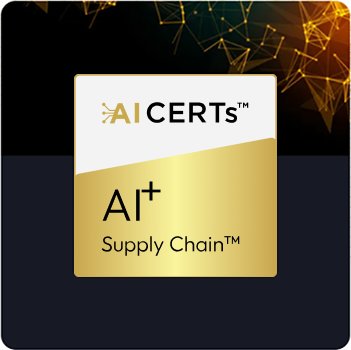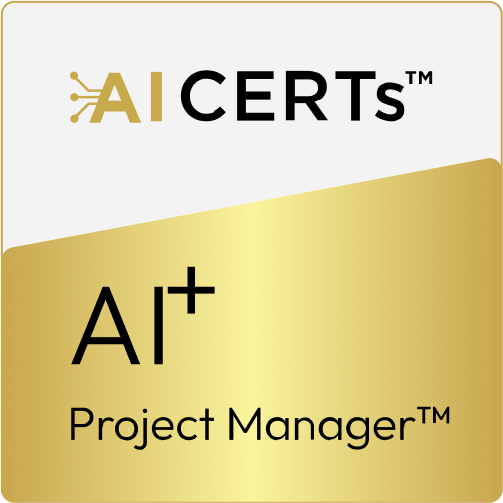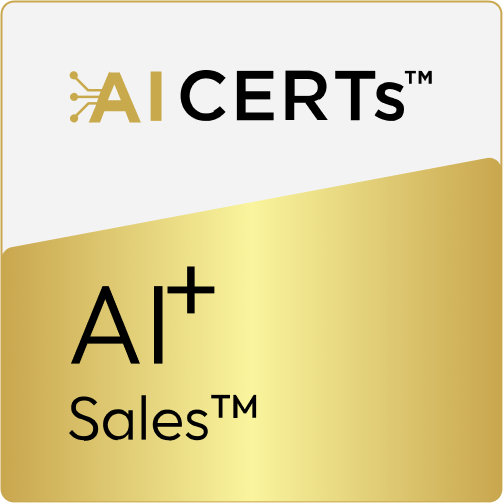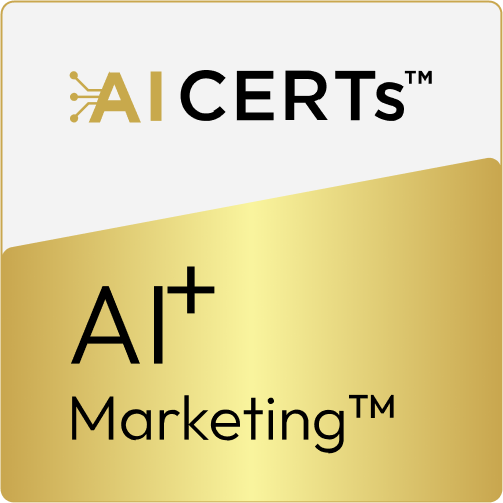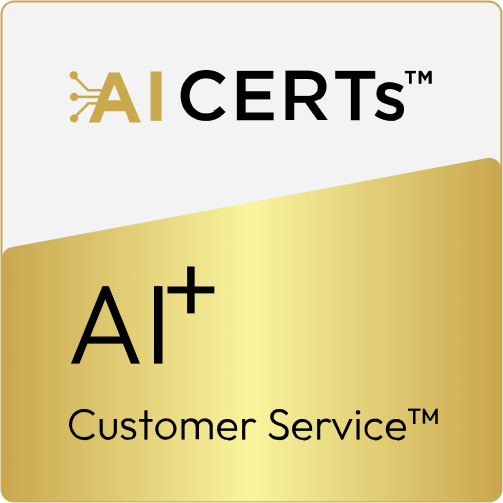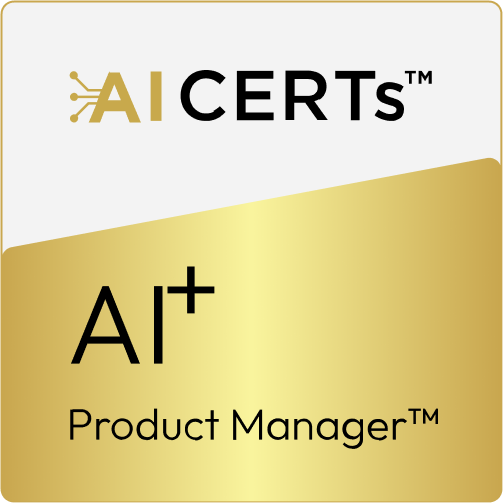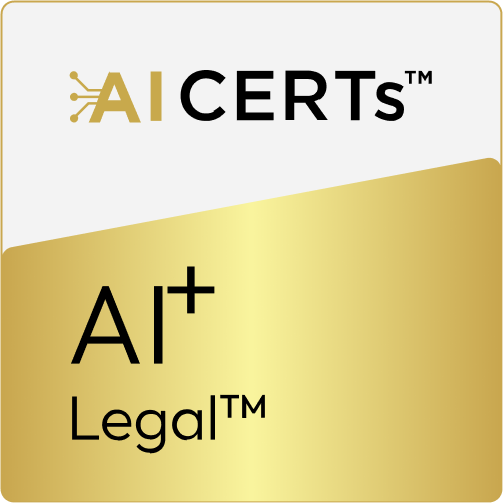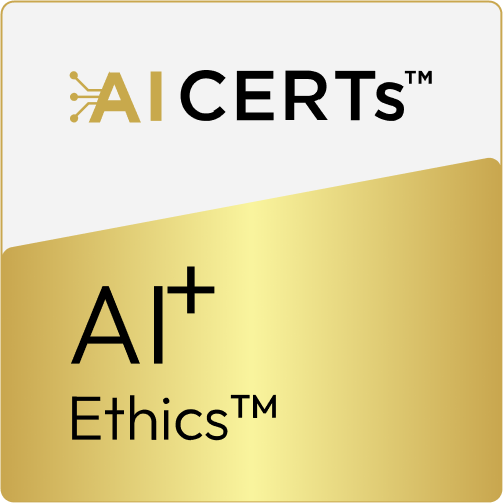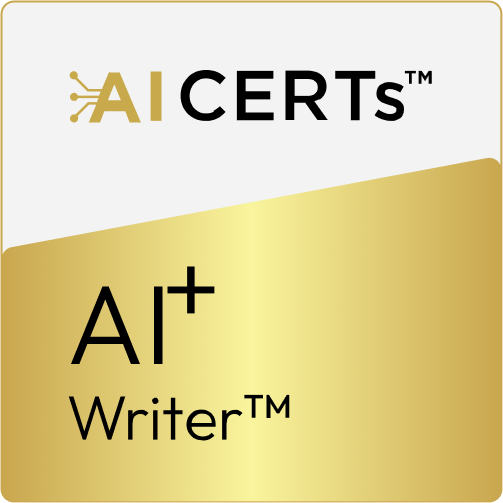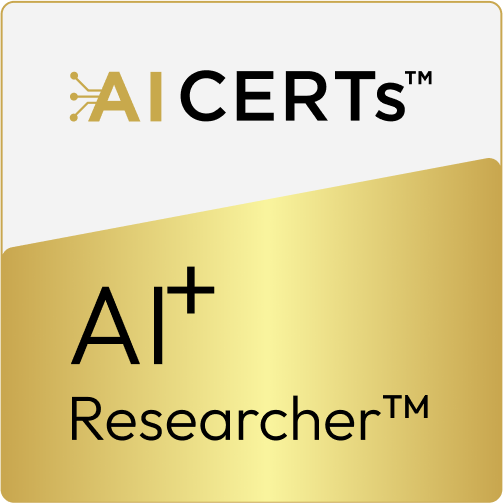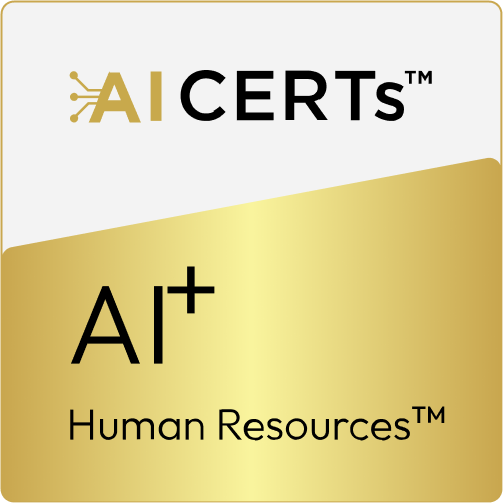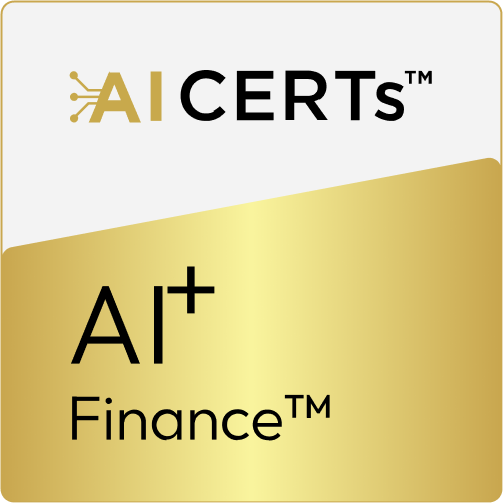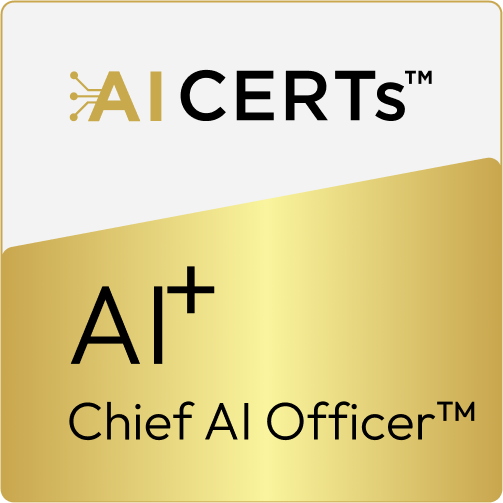AI+ Supply Chain™
# AP-710
Transforming Supply Chain Management
- Comprehensive Learning: Covers logistics, operations, and supply chain digitization
- Advanced Supply Strategies: Develop innovative supply strategies and workflows
- Sector-Specific Solutions: Tailored sessions for real-world, sector-specific challenges
- Lead AI Supply Efficiency: Prepares learners to lead in AI-led supply chain efficiency
AI+ Supply Chain
0:00
Why This Certification Matters
- Leverage AI for Smarter Supply Chain Operations: Learn how AI tools can optimize logistics, reduce costs, and improve supply chain efficiency from end to end.
- Optimize Demand Forecasting with AI: Use AI-driven analytics to predict demand, streamline inventory management, and reduce stockouts or overstocking.
- Stay Ahead in AI-Powered Supply Chain: As industries increasingly adopt AI, professionals with AI supply chain expertise are in high demand to drive innovation and efficiency.
- Enhance Decision-Making with Predictive Analytics: Master AI algorithms to analyze supply chain data and make informed, real-time decisions to improve overall operations.
At a Glance: Course + Exam Overview
Program Name
AI+ Supply Chain™
Included
Instructor-led OR Self-paced course + Official exam + Digital badge
Duration
Instructor-Led: 1 day (live or virtual) Self-Paced: 6 hours of content
Prerequisites
Foundational knowledge of supply chain, Prior experience with business management or technical tools, such as ERP systems or data analysis software, will be beneficial.
Exam Format
50 questions, 70% passing, 90 minutes, online proctored exam
Delivery
Projects & case studies
Outcome
Industry-recognized credential + hands-on experience

Who Should Enroll?
- Supply Chain Professionals: Enhance your supply chain management skills by integrating AI tools for improved forecasting, inventory management, and process optimization.
- Logistics & Operations Managers: Learn to leverage AI for optimizing logistics, route planning, and warehouse management to enhance operational efficiency and reduce costs.
- Procurement Experts: Use AI to improve supplier selection, demand forecasting, and inventory replenishment, streamlining procurement processes.
- Business Leaders: Drive innovation in your supply chain by adopting AI technologies to automate workflows, predict demand, and optimize end-to-end operations.
- Students & New Graduates: Gain a competitive advantage in the supply chain field by mastering AI tools and techniques that are transforming global logistics and supply chain management.
Available Dates
Job Roles & Industry Outlook
AI Procurement Specialist
Use AI tools to improve procurement strategies by optimizing supplier evaluation and reducing costs effectively.
Supply Chain Automation Specialist
Focuses on automating supply chain functions such as procurement, logistics, and inventory management through AI-powered tools.
AI Supply Chain Strategist
Develops and implements AI-driven strategies to improve supply chain efficiency, cost-effectiveness, and resilience.
Supply Chain Data Scientist
Utilizes AI and data analytics to gather insights from supply chain data, predicting trends, optimizing performance, and solving operational challenges.
Industry Growth: Enabling Smart Logistics & Demand Planning at Scale
- AI-powered supply chain technologies are projected to grow by 22% annually, driving the demand for skilled professionals. (Source: MarketsandMarkets)
- AI-driven tools are transforming industries like retail, manufacturing, and logistics, automating processes like demand forecasting, inventory management.
- The demand for AI-enhanced supply chain analytics is rising, as AI tools help optimize procurement, reduce costs, and predict supply chain disruptions.
- AI automation is becoming critical for organizations scaling supply chain operations, driving efficiencies in inventory management, procurement.

Skills You’ll Gain
AI Integration in Supply Chain
Content Optimization and SEO with AI
AI Prompt Engineering Mastery
AI-Driven Editorial Processes
What You'll Learn
Module 1: Introduction to Artificial Intelligence in Supply Chain
- 1.1 Overview of Artificial Intelligence in Supply Chain Management (SCM)
- 1.2 Transforming Supply Chains with AI
- 1.3 Ethical Implications of AI in Supply Chains
Module 2: Advanced AI Techniques for Supply Chain
- 2.1 Machine Learning in Supply Chain
- 2.2 Expert Systems in SCM
- 2.3 Integrating Images and Text in Supply Chain AI
Module 3: Generative AI in Supply Chain Management
- 3.1 The Origin of Generative AI
- 3.2 Generative AI in Revenue Management and Demand Forecasting
- 3.3 Transformer and LSTM Architectures in Generative AI
Module 4: Supply Chain Digitization
- 4.1 Introduction to Supply Chain Digitization
- 4.2 Supply Chain Integration and Push-Pull Strategies
- 4.3 Supply Chain Resiliency, Planning and Sustainability
Module 5: Intelligent Driven Supply Chain Management
- 5.1 Introduction to Smart SCM
- 5.2 Employing Smart SCM and Prompt Engineering
- 5.3 Future Trends of Smart SCM
Module 6: Industry Aspects of Advanced SCM
- 6.1 Introduction to Industrial SCM
- 6.2 Business Value from AI and Gen AI in Supply Chain
- 6.3 Risks and Challenges of Adopting AI and Gen AI in Industrial SCM
Module 7: Policies of Logistics Management in Supply Chain with AI
- 7.1 Role of Supply Chain Management in the Organization
- 7.2 Warehousing Strategy for Efficient Supply Chain Management
- 7.3 Technical Coverage of SCM with Multi-Dimensional Aspects
Module 8: Supply Chain Masterclass with AI Assistance
- 8.1 Supplier Selection and Relationship Management with AI
- 8.2 Mastering Advancements in SCM with Modern Artefacts
Optional Module: AI Agents for Supply Chain
- 1. What Are AI Agents
- 2. What Are AI Agents in Logistics and Supply Chain
- 3. Applications & Trends of AI Agents in Supply Chain
- 4. How Does an AI Agent Work
- 5. Core Characteristics of AI Agents
- 6. Key Advantages of AI Agents in Logistics and Supply Chain
- 7. Types of AI Agents
Tools You’ll Master

Frase

Jasper

Coupa (LLamasoft)
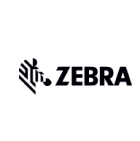
Zebra (Workcloud Demand Intelligence Suite)
Prerequisites
- Foundational knowledge of supply chain concepts, processes, and operations.
- A general understanding of Artificial Intelligence, including machine learning and data analytics, is recommended.
- Prior experience with business management or technical tools, such as ERP systems or data analysis software, will be beneficial.
- Strong analytical and problem-solving skills are essential to understand and apply AI-driven techniques in supply chain scenarios.
Exam Details
Duration
90 minutes
Passing Score
70% (35/50)
Format
50 multiple-choice/multiple- response questions
Delivery Method
Online via proctored exam platform (flexible scheduling)
Exam Blueprint:
- Introduction to Artificial Intelligence in Supply Chain - 10%
- Advanced AI Techniques for Supply Chain - 15%
- Generative AI in Supply Chain Management - 10%
- Supply Chain Digitization - 15%
- Intelligent Driven Supply Chain Management - 15%
- Industry Aspects of Advanced SCM - 15%
- Policies of Logistics Management in Supply Chain with AI - 10%
- Supply Chain Masterclass with AI Assistance - 10%
Choose the Format That Fits Your Schedule
What’s Included (One-Year Subscription + All Updates):
- High-Quality Videos, E-book (PDF & Audio), and Podcasts
- AI Mentor for Personalized Guidance
- Quizzes, Assessments, and Course Resources
- Online Proctored Exam with One Free Retake
- Comprehensive Exam Study Guide
Instructor-Led (Live Virtual/Classroom)
- 1 day of intensive training with live demos
- Real-time Q&A and peer collaboration
- Led by AI Certified Trainers and delivered through Authorized Training Partners
Self-Paced Online
- 6 hours of on-demand video lessons, e-book, and podcasts
- Learn anywhere, anytime, with modular quizzes to track progress
Discover Your Ideal Role-Based Certifications and Programs!
Not sure which certifications to go for? Take our quick assessment to discover the perfect role-based certifications and programs tailored just for you.
Frequently Asked Questions
What are the key AI technologies taught?
- You’ll learn about predictive analytics, machine learning for demand planning, and AI-driven logistics management.
What real-world applications will I explore?
- You’ll work on projects like optimizing warehouse operations and forecasting supply chain disruptions using AI.
What industries benefit most from this course?
- Retail, manufacturing, and logistics industries can significantly benefit from AI-driven supply chain improvements.
What tools will I use in the course?
- You’ll use tools like AI-based optimization software and predictive analytics platforms.
What does the AI+ Supply Chain™ course cover?
- This course teaches how AI can be used to optimize supply chain operations, including demand forecasting and inventory management.

